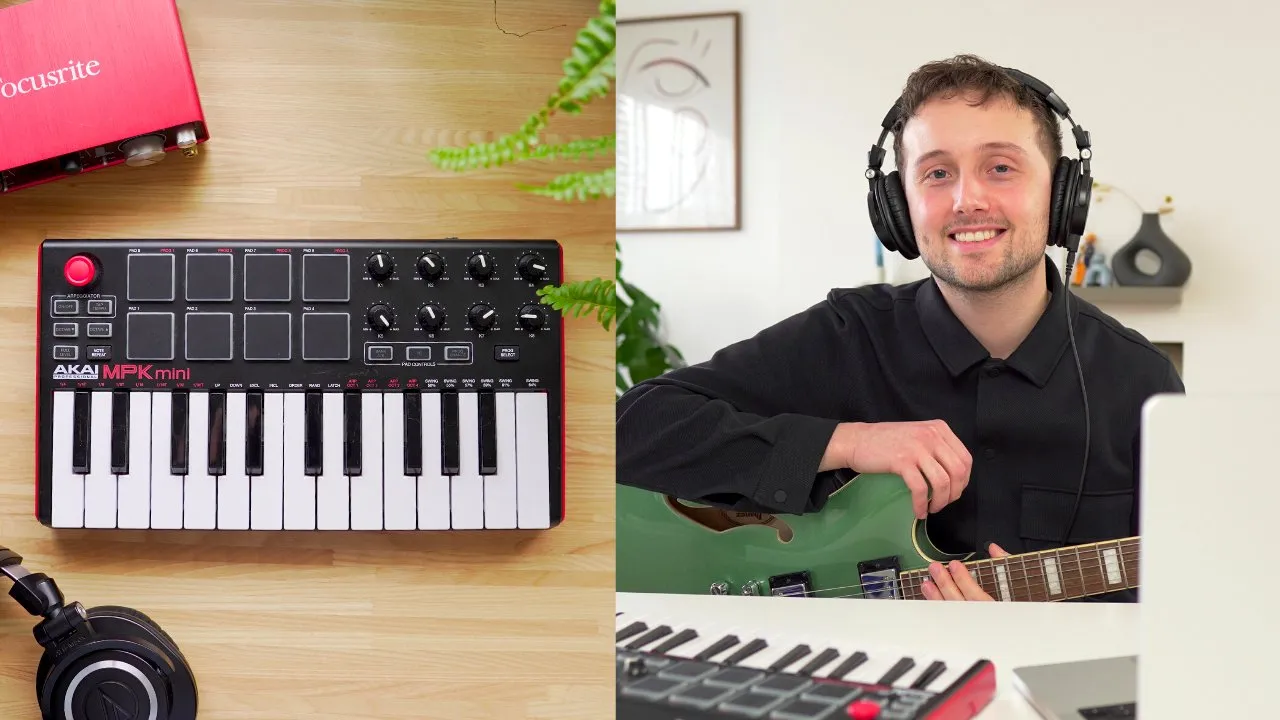
Music Theory for Songwriters: From Beginner to Producer 
This course provides a comprehensive introduction to music theory, guiding songwriters from beginner to producer level. With a strong foundation in music theory, participants will be able to confidently create amazing music. ▼
ADVERTISEMENT
Course Feature
![]() Cost:
Cost:
Free Trial
![]() Provider:
Provider:
Udemy
![]() Certificate:
Certificate:
No Information
![]() Language:
Language:
English
Course Overview
❗The content presented here is sourced directly from Udemy platform. For comprehensive course details, including enrollment information, simply click on the 'Go to class' link on our website.
Updated in [June 19th, 2023]
This course focuses on teaching music theory to beginner songwriters and producers. The course emphasizes that participants do not need any specific equipment to join, but having a basic understanding of a Digital Audio Workstation (DAW) or an instrument is recommended.
Throughout the class, various aspects of music theory will be covered, including chord progressions and melodies. The goal is to provide students with a comprehensive understanding of music theory so they can feel confident and creative when composing their own music.
The instructor suggests using headphones or decent speakers while listening to the course to ensure better audio quality, as some examples may be difficult to hear through laptop or phone speakers.
The instructor acknowledges that music theory can be complex and confusing, but assures that it doesn't have to be. The course aims to simplify the subject by introducing a few easy concepts that are commonly used in popular songs. Once these concepts are learned, the process of writing and producing music becomes much easier.
By the end of the course, students will not only have a solid grasp of music theory but will also receive a wealth of information on songwriting and music production. The possibilities are described as endless, ranging from creating orchestral film scores to crafting chart-topping beats, heartfelt ballads, or even achieving viral music sensations.
The instructor encourages students to ask questions if they are confused about any of the topics covered in the class. They can reach out via Udemy or email for clarification or further assistance.
[Applications]
By learning the fundamental concepts and techniques of music theory, participants will be equipped with the necessary skills to write and produce their own music, such as:
Songwriting: Participants will learn how to construct chord progressions, melodies, and harmonies, allowing them to create original compositions across different genres and styles.
Music Production: Understanding music theory helps in arranging and structuring musical elements effectively. Participants will be able to make informed decisions regarding instrumentation, arrangement, and production techniques to enhance the overall quality of their music.
Collaboration: With a shared understanding of music theory, participants can communicate more effectively with other musicians, producers, and songwriters. This facilitates collaboration and allows for better integration of ideas when working on projects together.
[Education Paths]
Completing a course in music theory and songwriting can open up several degree paths for students who wish to further their education in the field of music. Some potential degree paths include:
Bachelor's Degree in Music Composition: This degree program focuses on developing composition skills and musical creativity. Students learn advanced music theory, orchestration, arranging, and explore various compositional techniques. It prepares them for careers as composers, arrangers, or film scorers.
Bachelor's Degree in Music Production: This degree program emphasizes the technical and creative aspects of music production. Students learn about audio engineering, sound design, mixing, mastering, and music technology. They acquire skills to work as producers, recording engineers, or sound designers in the music industry.
Bachelor's Degree in Music Education: This degree program prepares students to become music educators. Alongside music theory and composition, students study pedagogy, music history, conducting, and teaching methodologies. They can pursue careers as music teachers in schools, private studios, or community music programs.
Course Syllabus
Keys
The Major Scale
Minor Scales & Keys
Chords
Chord Progressions
Chord Progressions Made Easy
7th Chords
Extensions
Sus Chords
Inversions
Melodies, Leads & The Pentatonic Scale
Developing Our Song
Course Provider

Provider Udemy's Stats at AZClass
Discussion and Reviews
0.0 (Based on 0 reviews)
Explore Similar Online Courses

Front-End JavaScript Frameworks: AngularJS

Neuronal Dynamics

Python for Informatics: Exploring Information

Social Network Analysis

Introduction to Systematic Review and Meta-Analysis

The Analytics Edge

DCO042 - Python For Informatics

Causal Diagrams: Draw Your Assumptions Before Your Conclusions

Whole genome sequencing of bacterial genomes - tools and applications

Orchestral Music Composition & Music Theory for Video Games

Music Theory Level 1: Part Five


Start your review of Music Theory for Songwriters: From Beginner to Producer